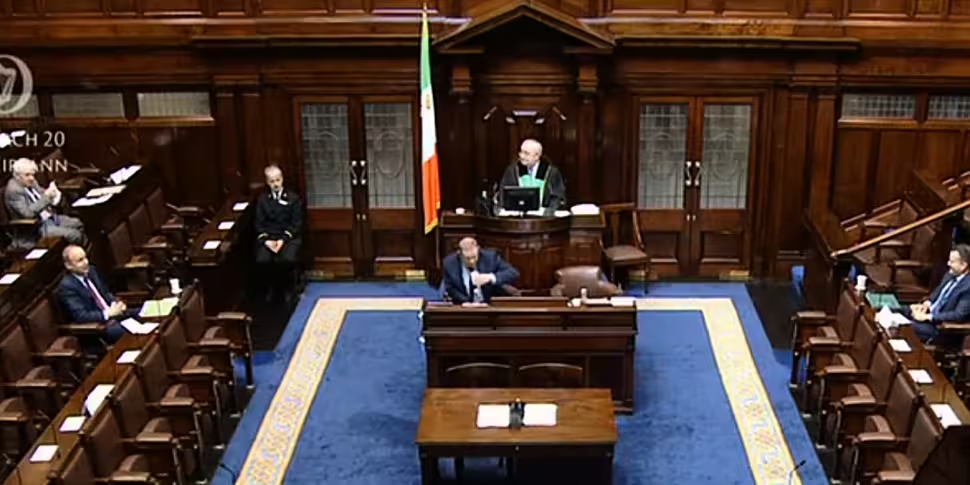The Dáil has begun sitting to approve the omnibus bill of emergency measures to tackle the coronavirus and support workers and businesses.
A reduced number of TDs are expected to sit for around 12 hours to approve the legislation, after a range of measures were announced earlier this week.
It includes a €3.7 billion social welfare package to support people who have lost their jobs because of the impact of the virus.
Measures to temporarily ban rent increases and evictions will also be approved.
The Taoiseach this morning suggested some of the emergency legislation being passed by the Dáil today will last beyond the current crisis.
Leo Varadkar said increased childcare supports they had intended to phase in may stay, along with faster access to sick pay.
He also told the Dáil: "Desperate times do not call for desperate measures - rather they call for composure and radical responses, that will provide hope and bring maximum benefit to those that need it most. This legislation is designed to do exactly that.
"We will be remembered for what happened after this emergency visited our shores, when we faced our greatest challenges."
Leo Varadkar says politicians don’t often get praise, and often don’t deserve it, but that the next few weeks is a chance for the body politic to shine in its response to #COVIDー19
— Seán Defoe (@SeanDefoe) March 26, 2020
Similar to last week's sitting, a reduced number of TDs is meeting in order to allow for social distancing in the Dáil chamber and the Leinster House complex.
The Dáil will also elect a Leas-Ceann Chomhairle - likely to be Independent TD Denis Naughten.
Today's legislation may be the last laws the Oireachtas can pass for some time.
The Ceann Comhairle has warned that the Chamber will lose the power to legislate from midnight on Sunday until a new Seanad is elected.
Seanad votes will be counted next week - but it won't be able to sit until there's a new government, putting extra pressure on the efforts from Fine Gael and Fianna Fáil to form one.
Both parties yesterday said they were working together to develop "a programme for government that provides stability and a working majority in the Dáil".
However, the current Dáil arithmetic means they will likely need the support of some independents or smaller parties to secure the required number of seats.









